
Île de Nantes: The Heartbeat of Modern Nantes
Île de Nantes is a dynamic and vibrant neighborhood that perfectly blends the old with the new. Situated on an island in the Loire River, this area has transformed from an industrial hub to a cultural and creative hotspot. It offers a unique experience for tourists who are keen to explore its rich history, cutting-edge architecture, and lively arts scene. One of the must-see attractions is the Machines of the Isle of Nantes, an extraordinary artistic project that brings mechanical creatures to life. Inspired by the works of Jules Verne and Leonardo da Vinci, this spectacle is a delight for both children and adults. Walking through the neighborhood, you can also witness stunning modern architecture, such as the School of Fine Arts and the Carrousel des Mondes Marins. Île de Nantes is also a haven for food lovers, featuring a variety of eateries that serve everything from traditional French cuisine to international dishes. The local markets are perfect for sampling fresh produce and regional specialties. For those who enjoy shopping, the area is dotted with unique boutiques and shops offering everything from handmade crafts to high-end fashion. In the evenings, the neighborhood comes alive with numerous bars, cafes, and cultural venues. Whether you’re interested in live music, theater, or simply enjoying a drink by the river, Île de Nantes has something to offer everyone. The neighborhood's welcoming atmosphere and diverse attractions make it a must-visit destination for any traveler.
Local tips in Île de Nantes
- Visit the Machines of the Isle of Nantes early in the day to avoid crowds.
- Explore the local markets for fresh produce and regional specialties.
- Take a leisurely stroll along the Loire River for scenic views and photo opportunities.
- Check local listings for live music and cultural events happening in the area.
- Wear comfortable shoes as the neighborhood is best explored on foot.
Île de Nantes: The Heartbeat of Modern Nantes
Île de Nantes is a dynamic and vibrant neighborhood that perfectly blends the old with the new. Situated on an island in the Loire River, this area has transformed from an industrial hub to a cultural and creative hotspot. It offers a unique experience for tourists who are keen to explore its rich history, cutting-edge architecture, and lively arts scene. One of the must-see attractions is the Machines of the Isle of Nantes, an extraordinary artistic project that brings mechanical creatures to life. Inspired by the works of Jules Verne and Leonardo da Vinci, this spectacle is a delight for both children and adults. Walking through the neighborhood, you can also witness stunning modern architecture, such as the School of Fine Arts and the Carrousel des Mondes Marins. Île de Nantes is also a haven for food lovers, featuring a variety of eateries that serve everything from traditional French cuisine to international dishes. The local markets are perfect for sampling fresh produce and regional specialties. For those who enjoy shopping, the area is dotted with unique boutiques and shops offering everything from handmade crafts to high-end fashion. In the evenings, the neighborhood comes alive with numerous bars, cafes, and cultural venues. Whether you’re interested in live music, theater, or simply enjoying a drink by the river, Île de Nantes has something to offer everyone. The neighborhood's welcoming atmosphere and diverse attractions make it a must-visit destination for any traveler.
Iconic landmarks you can’t miss
Les Machines de l'Île
Discover the enchanting world of Les Machines de l'Île, where imagination and engineering collide in a captivating experience in Nantes.
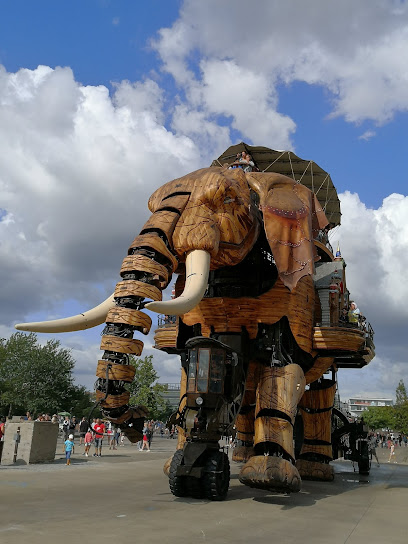
Château des ducs de Bretagne
Explore the rich history and stunning architecture of Château des Ducs de Bretagne, a must-visit landmark in Nantes, France.
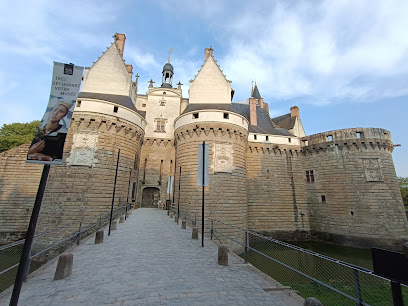
Botanical Garden
Explore the stunning Botanical Garden in Nantes, a serene oasis filled with diverse plant life, art installations, and tranquil paths perfect for relaxation.
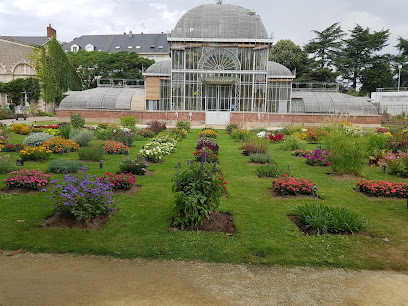
Ile de Versailles
Explore the serene Île de Versailles in Nantes, a captivating city park featuring stunning botanical gardens, tranquil landscapes, and a peaceful atmosphere.
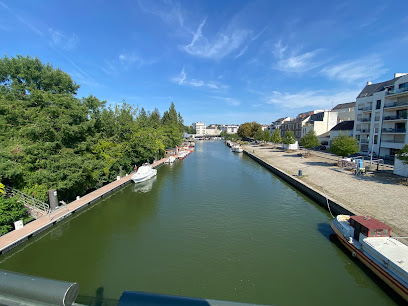
Place Royale
Explore the architectural beauty and cultural significance of Place Royale, a must-visit historical landmark in Nantes, France.
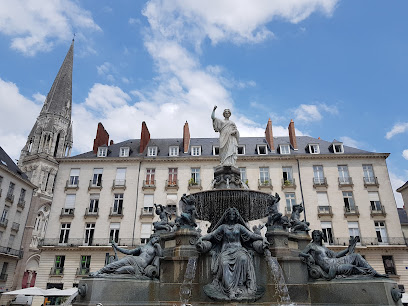
Memorial to the Abolition of Slavery
Explore the Memorial to the Abolition of Slavery in Nantes, a poignant tribute educating visitors on the legacy of the transatlantic slave trade.
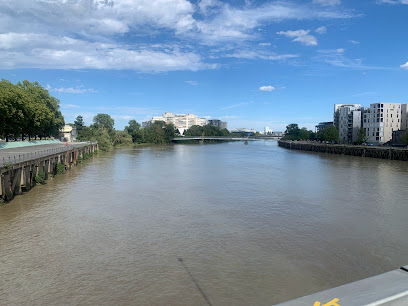
Miroir d'eau
Experience the stunning Miroir d'eau in Nantes, a mesmerizing water mirror reflecting the beauty of the city and offering a serene escape.
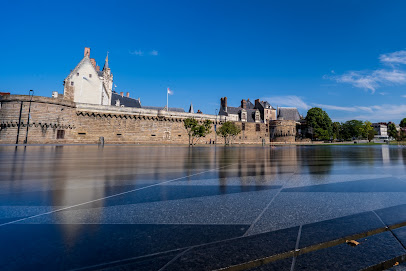
Mur Royal de Luxe de Nantes
Explore the Mur Royal de Luxe in Nantes: a vibrant mural celebrating local culture and history in an artistic urban setting.
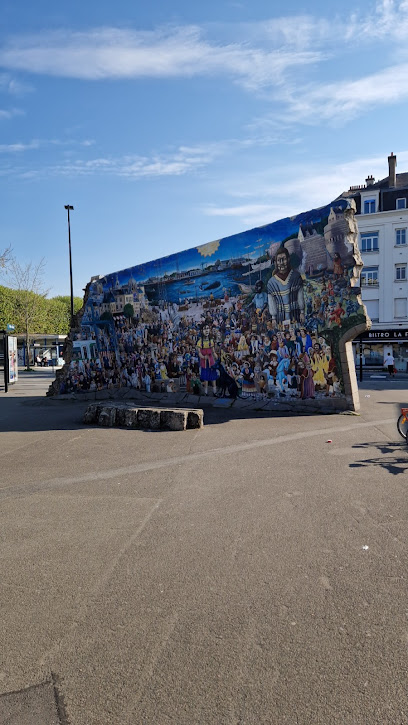
Fontaine de la Loire
Experience the charm of Nantes at Fontaine de la Loire, a stunning fountain reflecting the city's rich history and artistic elegance.
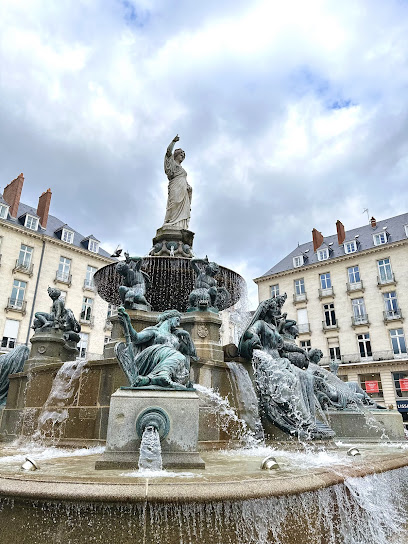
Psellion de l'île
Experience the artistic charm of Psellion de l'île, a serene tourist attraction in Nantes that harmonizes art with nature.
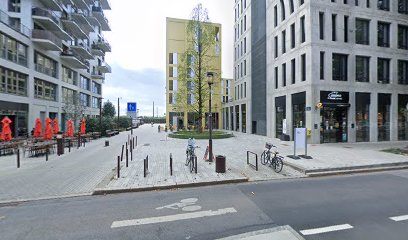
Essential places to dine
Les Fils À Maman Nantes Bouffay
Discover Les Fils À Maman Nantes Bouffay – where traditional French cuisine meets modern dining in an eclectic atmosphere.
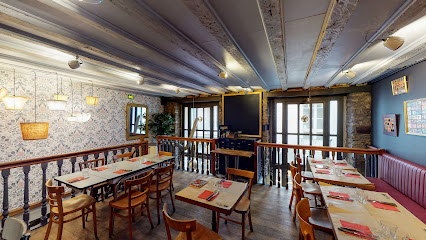
Le Fou du Roi
Experience the essence of modern French cuisine at Le Fou du Roi in Nantes - where tradition meets innovation.
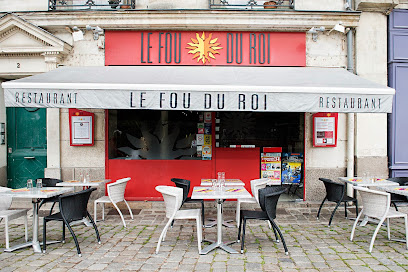
Pickles
Discover gourmet French cuisine at Pickles in Nantes, where organic ingredients meet haute culinary artistry for an unforgettable dining experience.
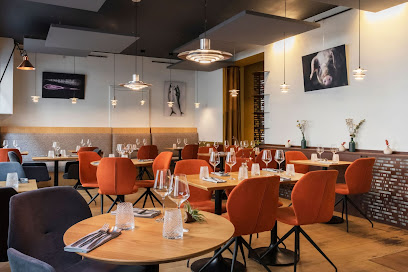
LuluRouget
Experience exquisite fine dining at LuluRouget in Nantes, where innovation meets tradition in every dish crafted from local ingredients.
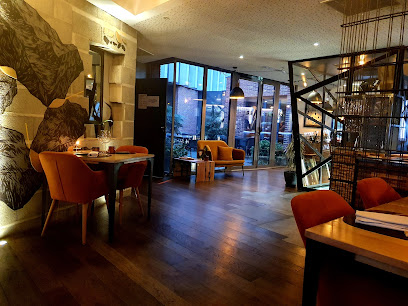
Chez ta Mère
Discover authentic French cuisine at Chez ta Mère in Nantes, where traditional flavors meet modern dining experiences.
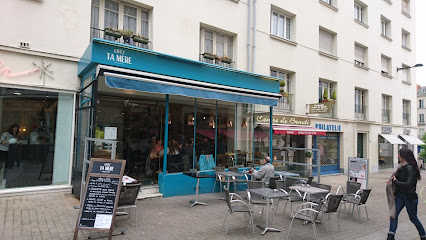
République Côté Jardin - Restaurant Nantes
Discover authentic French cuisine at République Côté Jardin in Nantes—an exquisite dining experience awaits you.
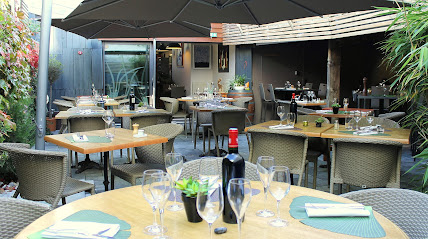
A Cantina
Discover A Cantina in Nantes: A delightful fusion of brasserie charm and fine wines awaits you.
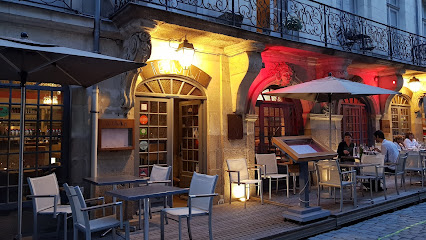
Le Boudoir - Restaurant Nantes
Experience exquisite French cuisine at Le Boudoir in Nantes - where every dish tells a story of local tradition and flavor.
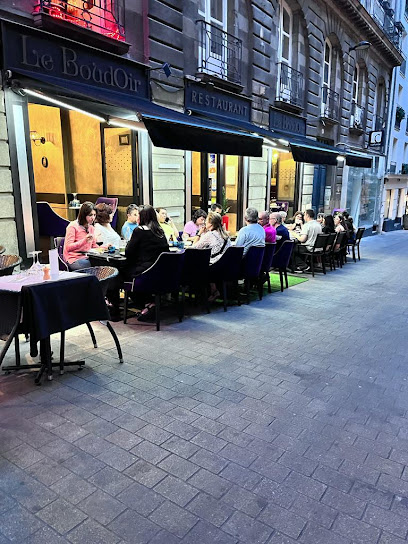
Restaurant Ti Lichous
Savor authentic French cuisine in Nantes at Restaurant Ti Lichous – where tradition meets taste in every delightful dish.
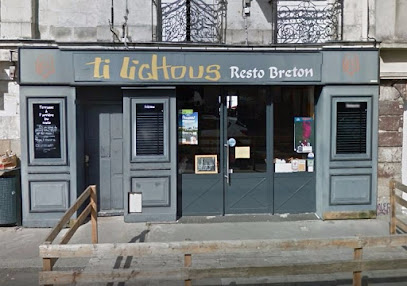
A Table Naturellement
Experience the best of Nantes' culinary scene at A Table Naturellement with fresh ingredients and inviting ambiance.
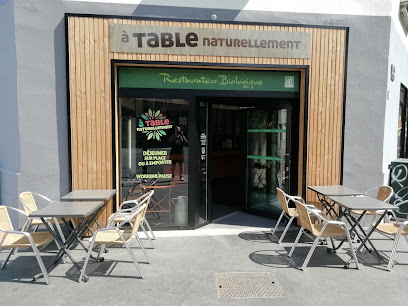
Markets, malls and hidden boutiques
Galeries Lafayette
Discover luxury shopping at Galeries Lafayette in Nantes, where fashion meets elegance and unique finds await every visitor.
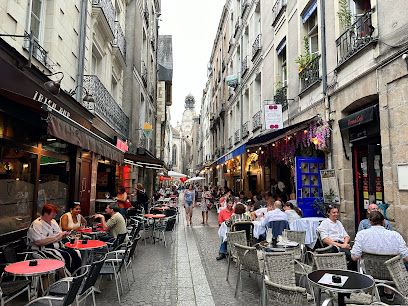
The Wizard's Shop
Explore The Wizard's Shop in Nantes for unique gifts and magical treasures that capture the essence of creativity and whimsy.
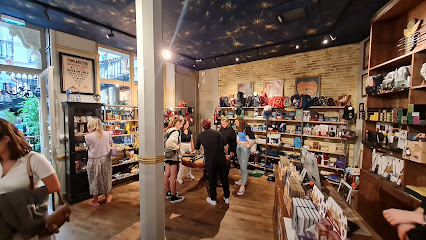
KILO SHOP NANTES
Explore unique vintage clothing at KILO SHOP NANTES, a sustainable fashion haven for men and women seeking one-of-a-kind pieces.
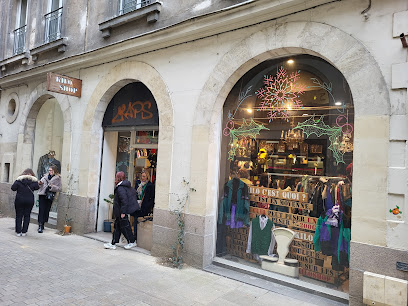
StreetShop Nantes: CBD Shop, Accessoires pour fumeurs & Graines de collection
Discover a vibrant hub for smoking culture at StreetShop Nantes, featuring premium hookahs, accessories, and collectibles in the heart of the city.
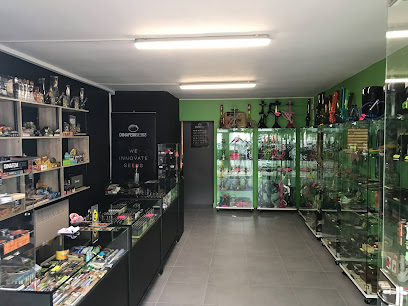
Custom Legend
Unveil the charm of Nantes through vintage finds and unique gifts at Custom Legend, a boutique that celebrates timeless fashion and local culture.
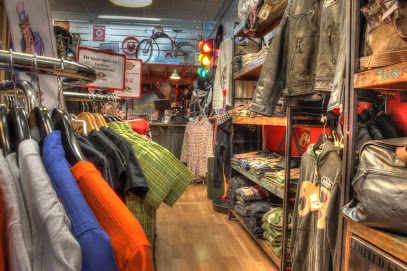
Little OCTOPUS Vintage
Explore the charm of vintage fashion at Little OCTOPUS Vintage in Nantes, where sustainable style meets unique finds.
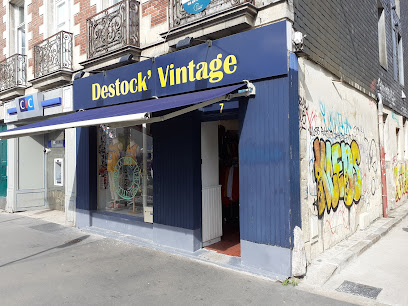
Sacrés Français !
Explore Sacrés Français !, the ultimate gift shop in Nantes, offering unique French souvenirs and handcrafted treasures that embody local craftsmanship.
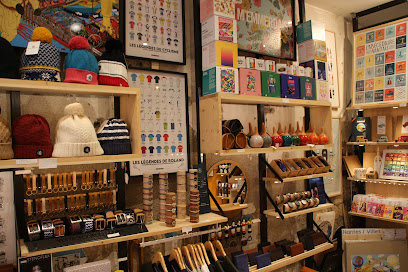
Boutique - Librairie des Machines de l'île
Explore the Boutique - Librairie des Machines de l'île in Nantes for unique books and gifts celebrating the Machines of the Isle's creative spirit.
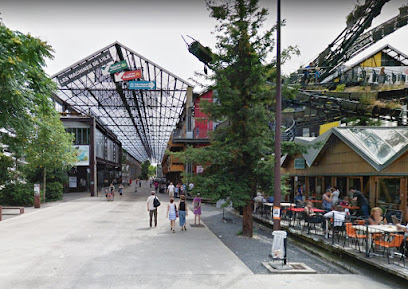
Boutique bientôt
Explore Boutique Bientôt in Nantes for unique gifts, comics, and stationery that capture the essence of French creativity and charm.
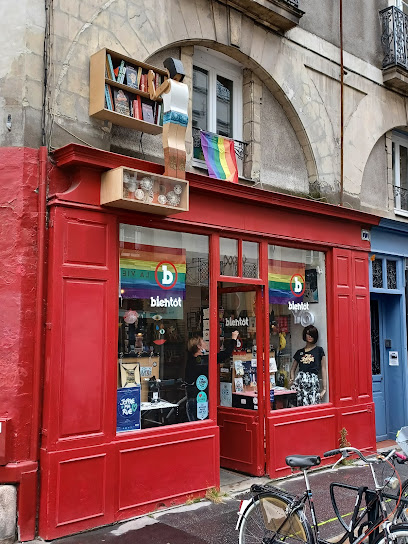
Mademoiselle France
Explore Mademoiselle France in Nantes for unique gifts, exquisite handicrafts, and fashionable accessories that capture the spirit of French creativity.
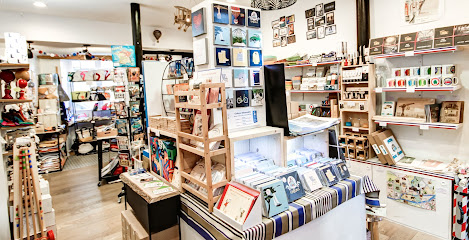
Essential bars & hidden hideouts
Le Dock Yard
Experience authentic Irish culture at Le Dock Yard, a vibrant pub in Nantes with live music, delicious drinks, and a welcoming atmosphere.
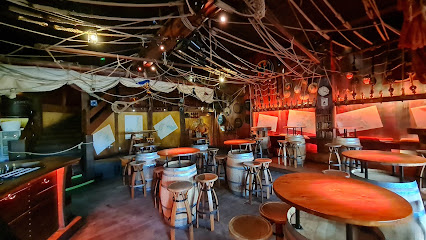
Peter Mc Cool Graslin - Irish Pub
Discover the heart of Irish culture at Peter Mc Cool Graslin, an inviting pub in Nantes offering hearty meals, lively sports, and great company.
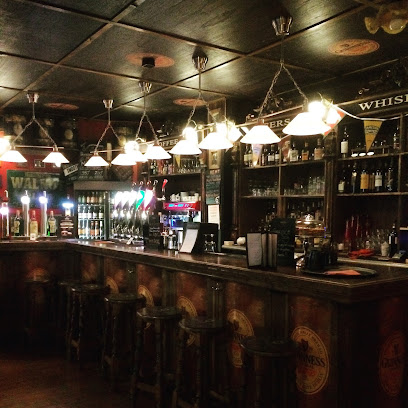
KITKAT Bar
Experience the vibrant nightlife of Nantes at the KITKAT Bar, where expertly crafted cocktails meet a lively atmosphere.
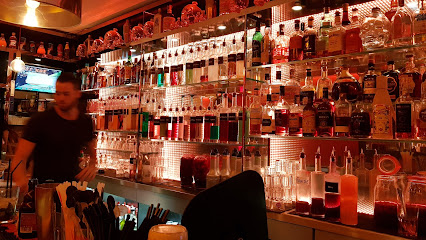
L'Univers Speakeasy
Discover the charm of L'Univers Speakeasy, where exquisite cocktails meet live jazz and delectable tapas in the heart of Nantes.
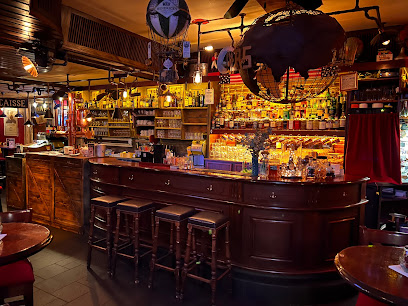
Bootlegger
Experience Nantes' nightlife at Bootlegger, a cocktail bar known for its creative drinks and vibrant atmosphere.
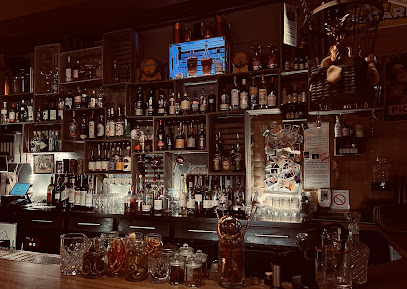
Bras de Fer
Discover Bras de Fer in Nantes: a delightful wine bar blending exquisite wines with live music for an unforgettable evening experience.
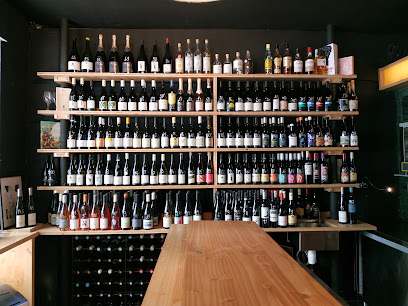
Bar Ile
Experience the essence of French cuisine at Bar Ile in Nantes, where tradition meets innovation in a charming setting.
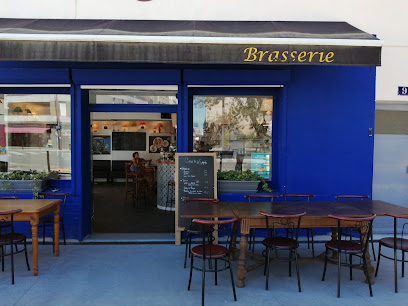
Le Tiki bar
Experience a slice of paradise at Le Tiki Bar in Nantes, where exotic cocktails and a vibrant atmosphere await every visitor.
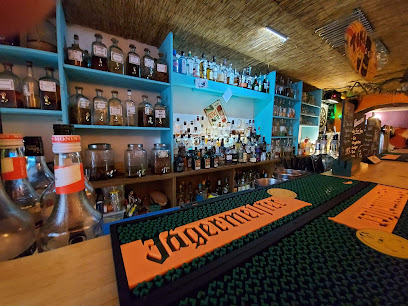
44 Tours
Discover the fusion of music and relaxation at 44 Tours, Nantes' charming bar and record store that promises an unforgettable experience.
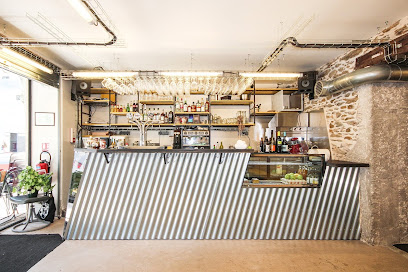
BB'O
Experience the vibrant nightlife of Nantes at BB'O, a lively bar known for its amazing live music and welcoming atmosphere.
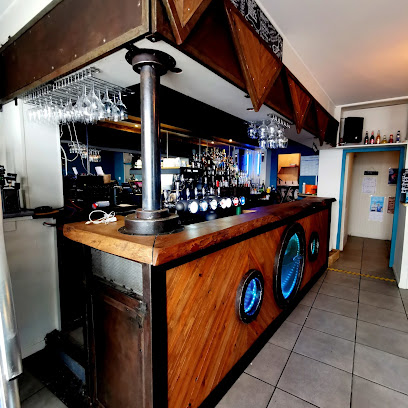
Local Phrases
-
- HelloBonjour
[bon-zhoor] - GoodbyeAu revoir
[oh ruh-vwahr] - YesOui
[wee] - NoNon
[nohn] - Please/You're welcomeS'il vous plaît / De rien
[seel voo pleh / duh ryen] - Thank youMerci
[mehr-see] - Excuse me/SorryExcusez-moi / Désolé(e)
[ex-kew-zay mwa / dey-zoh-lay] - How are you?Comment ça va?
[koh-mohn sah vah] - Fine. And you?Bien. Et vous?
[byehn. ay voo] - Do you speak English?Parlez-vous anglais?
[par-lay voo ahn-glay] - I don't understandJe ne comprends pas
[zhuh nuh kohm-prahnd pah]
- HelloBonjour
-
- I'd like to see the menu, pleaseJe voudrais voir la carte, s'il vous plaît
[zhuh voo-dray vwahr lah kart, seel voo pleh] - I don't eat meatJe ne mange pas de viande
[zhuh nuh mahnj pah duh vyand] - Cheers!Santé!
[sahn-tay] - I would like to pay, pleaseJe voudrais payer, s'il vous plaît
[zhuh voo-dray pay-yay, seel voo pleh]
- I'd like to see the menu, pleaseJe voudrais voir la carte, s'il vous plaît
-
- Help!Au secours!
[oh seh-coor] - Go away!Allez-vous en!
[al-lay vooz ahn] - Call the Police!Appelez la police!
[ah-pay-lay lah po-lees] - Call a doctor!Appelez un médecin!
[ah-pay-lay uh may-day-sahn] - I'm lostJe suis perdu(e)
[zhuh swee pair-doo] - I'm illJe suis malade
[zhuh swee mah-lahd]
- Help!Au secours!
-
- I'd like to buy...Je voudrais acheter...
[zhuh voo-dray ah-shet-ay] - I'm just lookingJe regarde juste
[zhuh ruh-gard juhst] - How much is it?Combien ça coûte?
[kohm-byen sah koot] - That's too expensiveC'est trop cher
[say troh sher] - Can you lower the price?Pouvez-vous baisser le prix?
[poo-vez voo beh-say luh pree]
- I'd like to buy...Je voudrais acheter...
-
- What time is it?Quelle heure est-il?
[kell ur ay eel] - It's one o'clockIl est une heure
[eel ay oon ur] - Half past (10)Dix heures et demie
[dees ur ay duh-mee] - MorningMatin
[mah-tahn] - AfternoonAprès-midi
[ah-pray meed-ee] - EveningSoir
[swahr] - YesterdayHier
[yair] - TodayAujourd'hui
[oh-zhoor-dwee] - TomorrowDemain
[duh-mahn] - 1Un
[uhn] - 2Deux
[duh] - 3Trois
[twah] - 4Quatre
[kat] - 5Cinq
[sank] - 6Six
[sees] - 7Sept
[sept] - 8Huit
[wheat] - 9Neuf
[nuff] - 10Dix
[dees]
- What time is it?Quelle heure est-il?
-
- Where's a/the...?Où est...?
[oo ay] - What's the address?Quelle est l'adresse?
[kell ay lah-dress] - Can you show me (on the map)?Pouvez-vous me montrer (sur la carte)?
[poo-vez voo muh mon-tray (soor lah kart)] - When's the next (bus)?Quand est le prochain (bus)?
[kahn ay luh proh-shahn (bus)] - A ticket (to ....)Un billet (pour ....)
[uhn bee-yay (poor)]
- Where's a/the...?Où est...?
History of Île de Nantes
-
Île de Nantes is situated on the Loire River and its history dates back to the early Middle Ages. Originally a marshy area, it began to develop as an industrial site in the 19th century due to its strategic location, which made it ideal for maritime activities. The island's development was closely tied to the city of Nantes, which was a significant port and commercial center in western France.
-
During the 19th century, Île de Nantes became a hub for shipbuilding and maritime industries. The establishment of several shipyards contributed to the economic growth of Nantes and the surrounding region. This industrial boom attracted a large workforce, leading to rapid population growth and urbanization on the island.
-
By the late 20th century, the shipbuilding industry on Île de Nantes began to decline due to globalization and the relocation of industrial activities. Many shipyards closed, leaving behind abandoned sites and a changing economic landscape. This period marked a significant challenge for the community.
-
In the early 2000s, Île de Nantes underwent a major urban renewal project aimed at revitalizing the area. The city embraced a vision of transforming the island into a vibrant cultural and residential hub. This included the development of parks, public spaces, and educational institutions, as well as the introduction of cultural projects such as Les Machines de l’île, a unique artistic and touristic attraction that showcases mechanical animals and art installations.
-
Today, Île de Nantes is a dynamic neighborhood that blends its industrial past with contemporary culture. The area is known for its innovative architecture, cultural venues, and public art. It hosts various events and festivals, making it a lively part of Nantes that attracts both locals and tourists. The transformation of Île de Nantes is indicative of the broader changes taking place in urban centers across France, focusing on sustainability and community engagement.
Île de Nantes Essentials
-
Île de Nantes is easily accessible from different neighborhoods in Nantes. The Tramway Line 1 connects the city center to Île de Nantes, with several stops including the 'Gare SNCF' and 'Commerce' stations. Alternatively, you can take bus lines 11 and 12, which also serve the area. If you're traveling from Nantes Atlantique Airport, you can use the Airport Shuttle (Bus Line 98) to reach the city center, and then switch to the tram or bus to get to Île de Nantes.
-
Île de Nantes is well-connected by public transport, including trams and buses. The Tramway Line 1 runs through the island, making it easy to navigate the area. Bicycles are also a popular option; you can rent a bike from one of the many bike-sharing services available. Walking is encouraged as many attractions, such as Les Machines de l'île and the Les Nefs, are located within a short distance from each other.
-
Île de Nantes is generally considered a safe area for tourists. However, standard precautions should be taken, especially after dark. While there are no specific high-crime areas, it's advisable to avoid poorly lit streets and remain aware of your belongings in crowded places. Petty theft can occur, so exercise caution in busy tourist spots.
-
In case of emergency, dial 112 for police, fire, or medical assistance in France. The nearest hospital is the CHU Nantes, located a short drive away from Île de Nantes. For minor health issues, pharmacies are available throughout the island. It's recommended to have travel insurance that covers medical emergencies.
-
Fashion: Do dress comfortably and casually, but consider wearing layers as the weather can change quickly. Don't wear overly revealing clothing, especially in more formal settings. Religion: Do respect local customs and traditions. Public Transport: Do validate your ticket before boarding and be courteous to fellow passengers. Don’t eat or drink on public transport. Greetings: Do greet people with a friendly 'Bonjour' during the day. Eating & Drinking: Do try local specialties, such as 'Nantes cake,' and enjoy outdoor dining. Don’t be overly loud or disruptive in cafes or restaurants.
-
To experience Île de Nantes like a local, take a leisurely stroll along the banks of the Loire River, especially at sunset. Visit the local markets for fresh produce and artisanal goods. Engage with locals at cafes and ask for recommendations on hidden gems. Don’t miss the vibrant street art scattered throughout the island, which reflects the area’s contemporary culture. For a unique experience, check out the seasonal events and festivals held in the area, showcasing local art and cuisine.
Nearby Cities to Île de Nantes
-
Things To Do in Angers
-
Things To Do in Rennes
-
Things To Do in La Rochelle
-
Things To Do in Saint-Malo
-
Things To Do in Tours
-
Things To Do in St. Clement
-
Things To Do in St. Helier
-
Things To Do in Gorey
-
Things To Do in St. Aubin
-
Things To Do in St. Brelade
-
Things To Do in St. Peter
-
Things To Do in St. Lawrence
-
Things To Do in Trinity
-
Things To Do in St. Ouen
-
Things To Do in Caen










